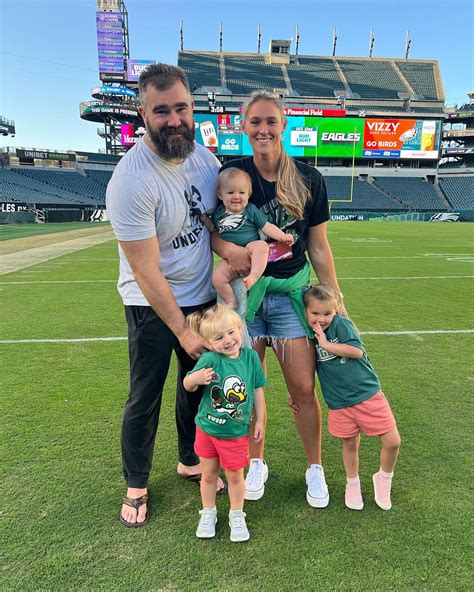
Childcare workers are sharing some of the most unbelievable and outrageous stories about parents they’ve encountered, revealing a behind-the-scenes look at the challenges and absurdities they face daily. From forgotten children to bizarre requests and questionable parenting decisions, the anecdotes highlight the often-unseen side of childcare and the diverse range of parental behaviors.
Childcare professionals have taken to social media and online forums to share their most shocking and humorous experiences with parents, offering a glimpse into the chaotic world of early childhood education. These stories, compiled from various sources, paint a vivid picture of the unexpected situations childcare workers navigate regularly, ranging from comical misunderstandings to serious concerns about child welfare.
One prevalent theme is parents forgetting to pick up their children. “I had a parent forget to pick up their child…twice in one week,” one childcare worker shared. This seemingly unbelievable occurrence is more common than one might think, often attributed to parental stress, busy schedules, or simple forgetfulness. However, these incidents raise questions about parental responsibility and the emotional impact on the child.
Another recurring scenario involves parents sending their children to daycare while knowingly sick. “Parents who send their kids in sick. Like, obviously, they know the kids are sick,” a childcare provider lamented. This practice poses a significant risk to the health and well-being of other children and staff, particularly in environments where illnesses can spread rapidly. Childcare centers often have strict policies regarding sick children, but enforcement can be challenging, especially when parents are facing work obligations or other pressures.
In one particularly shocking story, a childcare worker recounted, “Had a parent ask me to put whiskey in their baby’s bottle to help them sleep.” Such requests are not only unethical but also illegal and potentially harmful to the child. Childcare providers are obligated to report any suspected cases of child endangerment or neglect to the appropriate authorities.
The shared stories also reveal instances of parents making unusual or demanding requests. From dictating specific nap schedules to demanding constant updates and attention for their child, some parents place unrealistic expectations on childcare staff. “The parents who expect you to do everything for their child,” one worker noted, highlighting the challenges of balancing the needs of multiple children with the individual demands of certain parents.
These anecdotes underscore the importance of open communication and mutual respect between parents and childcare providers. A strong partnership built on trust and understanding can help ensure the best possible care and development for children. However, the stories also highlight the need for clear boundaries, consistent policies, and a commitment to prioritizing the well-being of the children above all else.
Beyond the individual stories, the collective experiences shared by childcare workers reveal broader issues within the childcare system. Low wages, high turnover rates, and a lack of resources contribute to a stressful and demanding work environment, making it even more challenging to address the complex needs of children and families.
The childcare industry plays a critical role in supporting working families and providing early learning opportunities for children. However, the challenges faced by childcare workers, as highlighted by these anecdotes, underscore the need for greater investment in the sector, including improved compensation, professional development, and resources to support both children and staff.
The sharing of these stories also serves as a form of catharsis for childcare workers, allowing them to connect with others who understand the unique challenges of their profession. By sharing their experiences, they raise awareness of the often-unseen realities of childcare and advocate for greater recognition and support for their vital work.
The article in Yahoo Lifestyle provides a platform for childcare workers to voice their experiences and shed light on the often-unacknowledged complexities of their profession. The stories shared are not only entertaining but also provide valuable insights into the world of childcare and the importance of supporting those who dedicate their lives to caring for and educating young children.
Here are some additional examples of the wild parent stories shared by childcare workers:
- The Case of the Misplaced Pacifier: “A parent insisted we find their child’s specific pacifier, which was apparently a family heirloom, even though it had been lost for days and the child had moved on to a new one.” This story highlights the emotional attachment some parents have to seemingly insignificant objects and the lengths they will go to in order to retrieve them.
- The Dietary Demands: “We had a parent who would send in elaborate, multi-course meals for their child every day, with strict instructions on the order in which they were to be served and the specific utensils to be used.” This anecdote illustrates the challenges of accommodating highly specific parental requests within a group childcare setting.
- The “Helicopter” Parent: “One parent would constantly call and text throughout the day, demanding updates on their child’s every activity, from what they ate for lunch to who they played with on the playground.” This story exemplifies the phenomenon of “helicopter parenting,” where parents are overly involved in their child’s life, often to the point of hindering their independence and development.
- The Fashion Faux Pas: “A parent sent their child to daycare in an outfit that was completely inappropriate for the weather, despite our repeated requests for them to dress the child accordingly.” This anecdote highlights the challenges of communicating effectively with parents and ensuring that children are properly cared for.
- The Potty Training Predicament: “We had a parent who refused to believe that their child was not yet potty trained, despite clear evidence to the contrary, and insisted that we continue to try, even though it was causing the child significant distress.” This story illustrates the importance of respecting a child’s developmental readiness and avoiding forcing them into situations that they are not yet prepared for.
- The “Expert” Parent: “One parent would constantly challenge our professional advice and expertise, claiming to know more about childcare than we did, despite having no formal training or experience.” This anecdote highlights the challenges of working with parents who are resistant to advice or who believe that their own methods are superior.
- The Latecomer: “We had a parent who was consistently late picking up their child, despite our repeated warnings and late fees, and would often offer flimsy excuses or blame traffic.” This story illustrates the importance of respecting the time and schedules of childcare workers and adhering to established policies.
- The Blame Game: “A parent blamed us for their child’s misbehavior at home, claiming that we were not disciplining them properly at daycare.” This anecdote highlights the challenges of working with parents who are unwilling to take responsibility for their child’s actions.
- The Secret Snack: “We caught a parent sneaking junk food into their child’s lunchbox, despite our policy against sugary snacks, and then denying it when confronted.” This story illustrates the importance of consistency and transparency in enforcing childcare policies.
- The Forgetful Parent (Again!): “Another parent forgot their child’s EpiPen, even though the child had a severe allergy and we had reminded them multiple times.” This highlights the serious consequences of parental negligence and the importance of vigilance on the part of childcare workers.
- The Screen Time Battle: “A parent would get angry when we limited their child’s screen time, even though we had a policy in place to encourage active play and social interaction.” This shows the differing philosophies between parents and childcare providers regarding technology use.
- The Birthday Party Drama: “A parent threw a tantrum because their child wasn’t invited to every single birthday party in the class, demanding that we intervene and ensure their child was included.” This highlights the social pressures and anxieties that some parents project onto their children.
- The Clothing Conundrum: “A parent would send their child in expensive, designer clothes, then get upset when they got dirty while playing outside.” This demonstrates a lack of understanding of the nature of childcare and the importance of allowing children to engage in messy activities.
- The Lice Outbreak Denial: “A parent refused to acknowledge that their child had lice, even when we showed them the evidence, putting other children at risk.” This highlights the importance of honesty and cooperation in preventing the spread of contagious conditions.
- The “My Child Is Perfect” Syndrome: “A parent refused to believe that their child was having any difficulties socializing with other children, even when we provided specific examples of their behavior.” This showcases a lack of objectivity and a tendency to idealize one’s own child.
- The Picky Eater’s Paradise (or Problem): “A parent would insist that their child only eat specific brands of food, making mealtime a logistical nightmare for us.” This highlights the challenges of accommodating extremely picky eaters in a group setting.
- The Naptime Negotiation: “A parent would try to negotiate with us about their child’s naptime, even though we had a set schedule for all the children.” This demonstrates a lack of respect for the needs of the group and the importance of maintaining a consistent routine.
- The Constant Comparisons: “A parent would constantly compare their child to other children in the class, often in a negative way.” This highlights the dangers of competitive parenting and the importance of celebrating each child’s individual strengths.
- The “Do It For Me” Parent: “A parent would ask us to do things for their child that they were perfectly capable of doing themselves, such as putting on their shoes or getting their backpack.” This discourages independence and hinders the child’s development.
- The Unrealistic Expectations Express: “A parent expected their toddler to be able to read and write before they were even three years old.” This demonstrates a lack of understanding of child development and the importance of age-appropriate expectations.
These stories, while often humorous, also shed light on the serious challenges faced by childcare workers. They work long hours for low pay, often dealing with demanding parents and stressful situations. The stories underscore the importance of supporting childcare workers and recognizing the vital role they play in the lives of children and families.
The original article also mentions the importance of finding humor in these situations. While childcare workers take their jobs very seriously, they also need to be able to laugh at the absurdities they encounter in order to cope with the stress and demands of the job. The shared stories provide a sense of community and allow childcare workers to connect with others who understand their experiences.
The Yahoo Lifestyle article serves as a reminder that childcare is not just about babysitting. It is a complex and demanding profession that requires patience, compassion, and a deep understanding of child development. Childcare workers are not only caregivers but also educators, nurturers, and advocates for children.
The experiences shared by these childcare workers also raise questions about the pressures faced by parents. Many parents are struggling to balance work, family, and other responsibilities, and this can lead to stress and exhaustion. It is important for parents to seek support when they need it and to remember that they are not alone in their struggles.
Ultimately, the article highlights the importance of communication, understanding, and mutual respect between parents and childcare workers. By working together, parents and childcare providers can create a supportive and nurturing environment for children to thrive.
Frequently Asked Questions (FAQ)
1. What are some of the most common issues childcare workers face when dealing with parents?
Childcare workers often encounter issues such as parents forgetting to pick up their children, sending sick children to daycare, making unrealistic or demanding requests, failing to communicate effectively, and disagreeing with childcare policies. One childcare worker recounted an incident where a “parent asked me to put whiskey in their baby’s bottle to help them sleep,” showcasing the extreme and unethical requests some providers face. “Parents who send their kids in sick. Like, obviously, they know the kids are sick,” is another frequent frustration, risking the health of other children and staff.
2. Why do parents sometimes forget to pick up their children from daycare?
While it might seem unbelievable, parents forget to pick up their children for various reasons, including stress, busy schedules, work obligations, simple forgetfulness, or miscommunication. These incidents, while sometimes unintentional, highlight the importance of establishing clear communication protocols and emergency contact procedures. The impact on the child, however, can be significant, leading to feelings of abandonment or anxiety.
3. What is the protocol for childcare centers when a parent sends a sick child to daycare?
Most childcare centers have strict policies regarding sick children to prevent the spread of illness. These policies typically require parents to keep their child home if they exhibit symptoms such as fever, vomiting, diarrhea, or a persistent cough. If a child becomes sick while at daycare, parents are usually contacted and asked to pick up their child as soon as possible. Failure to comply with these policies can result in the child being temporarily excluded from the daycare program. Childcare workers often have to navigate difficult conversations with parents who may be facing work pressures or lack alternative childcare options.
4. What are the ethical obligations of childcare workers when they suspect child endangerment or neglect?
Childcare workers are mandated reporters, meaning they are legally obligated to report any suspected cases of child endangerment or neglect to the appropriate authorities, such as child protective services. This includes situations where a parent makes an unethical or harmful request, such as the previously mentioned incident involving whiskey in a baby’s bottle. Failure to report suspected abuse or neglect can result in legal consequences for the childcare worker. The decision to report can be difficult, but the well-being of the child is always the top priority.
5. How can parents and childcare workers build a stronger partnership to ensure the best possible care for children?
Building a strong partnership requires open communication, mutual respect, and a shared commitment to the child’s well-being. Parents should communicate openly with childcare workers about their child’s needs, preferences, and any concerns they may have. Childcare workers should provide regular updates to parents about their child’s progress and development. Both parties should respect each other’s expertise and work together to create a consistent and supportive environment for the child. Setting clear expectations, adhering to established policies, and addressing concerns promptly are crucial for maintaining a positive and productive relationship. The goal is to create a unified front that prioritizes the child’s needs and promotes their healthy development.
6. What impact does low pay and high turnover have on the childcare industry?
Low wages and high turnover rates within the childcare industry contribute to a stressful and demanding work environment. This can lead to burnout among childcare workers and negatively impact the quality of care provided to children. High turnover disrupts the consistency and stability that children need, making it difficult for them to form secure attachments and build trust with their caregivers. Addressing these issues requires greater investment in the sector, including improved compensation, professional development opportunities, and resources to support both children and staff.
7. What are some strategies childcare providers use to manage demanding or “helicopter” parents?
Childcare providers employ various strategies to manage demanding or “helicopter” parents. These include setting clear boundaries and expectations from the outset, communicating regularly and proactively, documenting observations and interactions, and addressing concerns in a calm and professional manner. It’s important to actively listen to the parents’ concerns, but also to gently guide them toward a more balanced and age-appropriate approach to parenting. Emphasizing the importance of fostering independence and self-reliance in children can also be helpful.
8. How can childcare centers address the issue of parents sending sick children to daycare?
Addressing the issue of sick children requires a multi-pronged approach. This includes having a clear and well-communicated sick policy, educating parents about the importance of keeping sick children home, providing alternative care options or resources, and enforcing the policy consistently. Creating a culture of open communication and mutual respect can also encourage parents to be more honest about their child’s health. Some centers may also consider offering on-site health screenings or consultations with a nurse or healthcare professional.
9. What are some common misunderstandings between parents and childcare providers?
Common misunderstandings often arise from differing expectations, communication styles, or cultural backgrounds. Parents may have unrealistic expectations about what childcare providers can do, or they may misinterpret certain behaviors or actions. Childcare providers may struggle to understand the parents’ perspectives or to communicate their own concerns effectively. Open and honest communication is essential for bridging these gaps and building a stronger understanding. Active listening, empathy, and a willingness to compromise are key to resolving misunderstandings and fostering a positive relationship.
10. What resources are available to support childcare workers in dealing with challenging situations?
Childcare workers can access a variety of resources to support them in dealing with challenging situations. These include professional development opportunities, mentorship programs, peer support groups, and access to mental health services. Childcare centers can also provide training and support on topics such as conflict resolution, communication skills, and child development. Additionally, organizations such as the National Association for the Education of Young Children (NAEYC) offer resources and advocacy to support the childcare profession.









